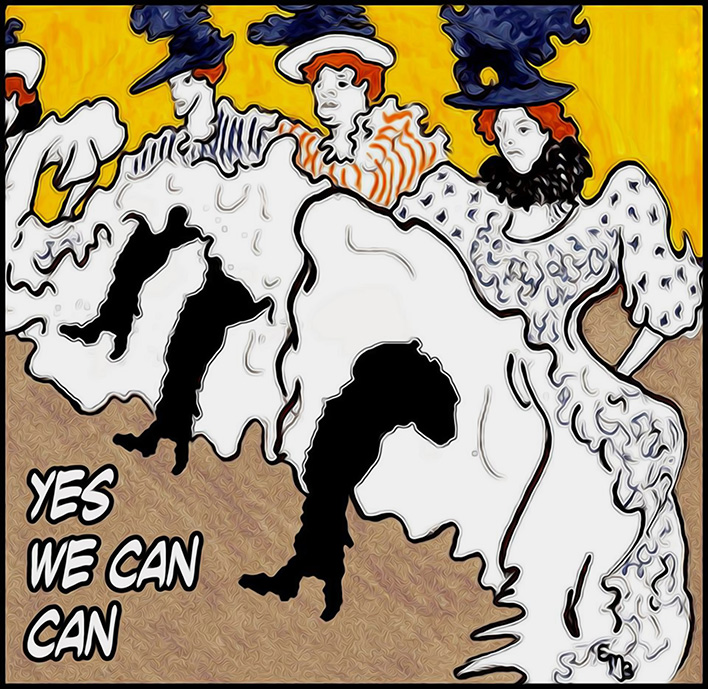Mosca mostruosa. La figura del dinosauro nella produzione postmoderna moscovita
Abstract
Il saggio offre un'interpretazione della figura del dinosauro nell'imagérie di Mosca alla fine del XX secolo come allegoria sardonica dello stato in cui l'ideologia marxista-leninista imperversava in quegli anni, sempre più gonfiata dall'aria della retorica mentre sotto la superficie si apriva un vuoto di contenuto, sempre più incolmabile. Nell'Ustione di V. Aksenov (1975-76), nelle tele del duo soc-artistico Komar e Melamid (Ritratti ancestrali, Bolscevichi di ritorno a casa dopo la dimostrazione, 1978-82), nel disegno Horror di D. Prigov (anni Novanta), in La bella di Mosca di V. Erofeev (1990) e infine in Ghiaccio di V. Sorokin (2002), il mostro preistorico nelle sue diverse declinazioni è incarnazione di uno humour nero caratterizzato da un'ambiguità e un'ambivalenza tipiche sia della parodia postmoderna analizzata da L. Hutcheon, che del realismo grottesco descritto da M. Bachtin. Lo sforzo dell'artista di diventare altro da sé, inserendosi nella e insieme astraendosi dalla propria cultura attraverso l'uso dell'ironia, è ritratto nel Bestiario prigoviano (1977-2004), dove i suoi colleghi sono tanto più 'mostruosi' quanto più 'geniali'. La figura del dinosauro crea uno scontro, tragicomico e destabilizzante, che fa riflettere su un periodo storico travagliato e sulla volente o nolente complicità dell'Arte nella costruzione retorica dei discorsi dell'ufficialità.
Downloads
Riferimenti bibliografici
Aksenov, Vasilij, Zvezdnyj bilet (1961), Aarhus, Akademisk boghandel, 1970, trad. it. Il biglietto stellato, Ed. Giuseppe Garritano, Roma, Editori Riuniti, 1961.
Id., Ožog (1980), Moskva, Izograf, 2005, trad. it. L'ustione, Eds. Giovanni Buttafava e Sergio Rapetti, Milano, Mondadori, 1980.
Aksenov, Vasilij – Bitov, Andrej – Erofeev, Viktor – Iskander, Fazil' – Popov, Evgenij (eds.), Metropol'. Literaturnyj al'manach, Moskva, Ardis, 1979.
Al'bert, Jurij, Moskovskij konceptualizm. Načalo, Nižnij Novgorod, Privolžovskij filial Gosudarstvennogo centra sovremmogo iskusstva, 2014.
Aucouturier Michel, “La letteratura della dissidenza”, Storia della civiltà letteraria russa, vol. 2, Eds. Michele Colucci e Riccardo Picchio, Torino, Utet, 1997: 467-486.
Bachtin, Michail, L'opera di Rabelais e la cultura popolare (1965), Torino, Einaudi, 1979.
Id., Estetica e romanzo, Torino, Einaudi, 2001.
Bobrinskaja, Ekaterina, Čužie?, Moskva, Breus, 2012.
Caramitti, Mario, Letteratura russa contemporanea, Bari,Laterza, 2010.
Carrère, Emmanuel, Limonov, Milano, Adelphi, 2012.
Cohen, Jeffrey Jerome, “Monster Culture (Seven Thesis)”, Monster Theory: Reading Culture, Ed. Jeffrey Jerome Cohen, Minneapolis, University of Minnesota Press, 1996: 3-25.
Degot', Ekaterina, Dmitrij Aleksandrovič Prigov. Graždane! Ne zabyvajtes', požalujsta! Raboty na bumage, installjacija, kniga, performans, opera i deklamacija, Moskva, Izdatel'skaja programma Moskovskogo muzeja sovremennogo iskusstva, 2008.
Denissova, Galina (ed.), Mosca sul palmo di una mano: 5 classici della letteratura contemporanea, Pisa, Pisa University Press, 2005.
Epstein, Mikhail, “Postmodernism, Communism, and Sots-Art”, Russian Postmodernism. New Perspectives on Post-Soviet Culture, Eds. Mikhail Epstein, Aleksander Genis e Slobodanka Vladiv-Glover, New York & Oxford, Berghahn Books, 2016: 51-94.
Erofeev, Viktor, Russkaja Krasavica. Roman. Rasskazy, Sojuz fotochudožnikov Rossii “Molodaja Gardija”, 1994, trad. it. La bella di Mosca, Ed. Pia Pera, Milano, BUR, 2010.
Id., Chorošij Stalin, Moskva, Zebra E, 2004, trad. it. Il buon Stalin, Ed. Luciana Montagnini, Torino, Einaudi, 2008.
Etkind, Etim, Process Iosifa Brodskogo, London, Overseas Publications Interchange, 1988.
Gerlovin, Rimma e Valerij, “rimma and valerij gerloviny”, A-Ja. Žurnal neoficial'nogo russkogo iskusstva, 1 (1979): 17-20.
Groys, Boris, History Becomes Form: Moscow Conceptualism, Cambridge & London, MIT Press, 2010.
Hobsbawm, Eric J., Il secolo breve. 1914-1991: l'era dei grandi cataclismi, Milano, Rizzoli, 1997.
Hutcheon, Linda, The Politics of Postmodernism (1989), London and New York, Routledge,1993.
Jampol'skij, Michail, “Novaja antropologija kak novaja zoologija”, Ozerkov 2011: 152-175.
Jurčak, Aleksej, Eto bylo navsegda, poka ne končilos', Moskva, NLO, 2014.
Lux, Simonetta, “Dmitrij Prigov, l'artista come altro da sé”, Niero 2014: 148-155.
Niero, Alessandro (ed.), Dmitrij Prigov. Oltre la poesia, Venezia, Marsilio, 2014.
Ozerkov, Dimitri (ed.), Dmitri Prigov: Dmitri Prigov, Zurich, Barbarian Art Gallery, 2011.
Piretto, Gian Piero, “Agonia, morti e resurrezioni mediatiche del compagno Stalin”, Dissolvenze. Corpi e culture nella contemporaneità, Ed. Nicoletta Vallorani, Milano,Il Saggiatore, 2009: 53-70.
Prigov, Dmitrij, “Dlja Džordžika”, Prigov Dmitrij Aleksandrovič, s.d., http://prigov.ru/bukva/stixi_djorjika.php, web (ultimo accesso 06/12/2016).
Id., Živite v Moskve, Moskva,NLO, 2000; trad. it. Eccovi Mosca, Ed. Roberto Lanzi, Roma, Voland, 2005.
Id., Monstry/ Sobranie sočinenij v 5-ti t., Moskva, NLO, 2017.
Puškin, Aleksandr, Eugenio Onegin, testo russo a fronte, Ed. Eridano Bazzarelli, Milano, Rizzoli, 1985.
Ratcliff, Carter (ed.), Komar & Melamid, New York, Abbeville Press, 1988.
Solženicyn, Aleksandr, Odin den' Ivana Denisoviča: rasskazy 60-h godov (1962), Sankt-Peterburg, Azbuka-Klassika, 2007; trad. it. Una giornata di Ivan Denisovič, Ed. Raffaello Uboldi, Torino, Einaudi, 1963.
Sorokin, Vladimir, Pervyj subbotnik, Vldmr Srkn. Oficial'nyj sajt Vladimira Sorokina, 1979-84, http://www.srkn.ru/texts/persub_part1.shtml, web (ultimo accesso 07/12/2016).
Id., Očered', Vldmr Srkn. Oficial'nyj sajt Vladimira Sorokina, 1983, http://www.srkn.ru/texts/ochered.shtml, web (ultimo accesso 07/12/2016); trad. it. La coda, Ed. Pietro A. Zveteremich, Parma, Guanda, 2013.
Id., Led, in Sobranie sočinenij v trech tomach. Tom 3, Ekaterinburg, Ad Marginem, 2002: 603-814; trad. it. Ghiaccio, Ed. Marco Dinelli, Torino, Einaudi, 2005.
Svetljakov, Kirill (ed.), Dmitrij Prigov: ot Renessansa do konceptualizma i dalee, Ministerstvo kul'tury Rossijskoj Federacii, Gosudarstvennaja Tret'jakovskaja galereja, 2014.
Werth, Nicolas, Storia della Russia nel Novecento. Dall'impero russo alla Comunità degli Stati Indipendenti 1900-1991, Bologna, il Mulino, 2000.
Informazioni sul copyright
Questa licenza permette a terzi di riprodurre, distribuire, comunicare al pubblico, esporre in pubblico, rappresentare, eseguire, recitare e modificare quest'opera, purché vengano citati l'autore e la rivista. Questa è la più ampia tra le licenze Creative Commons, rispetto alle libertà concesse a terzi sulle opere licenziate sotto Attribuzione.









